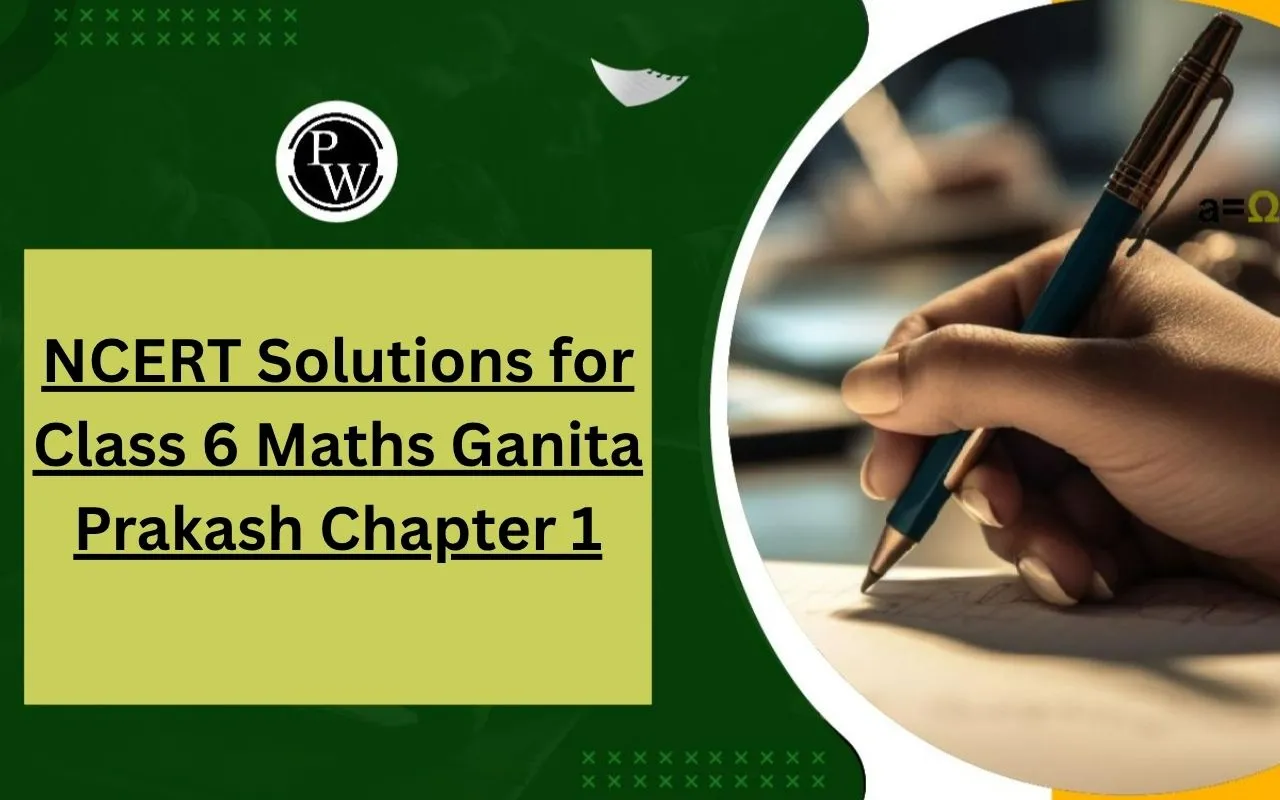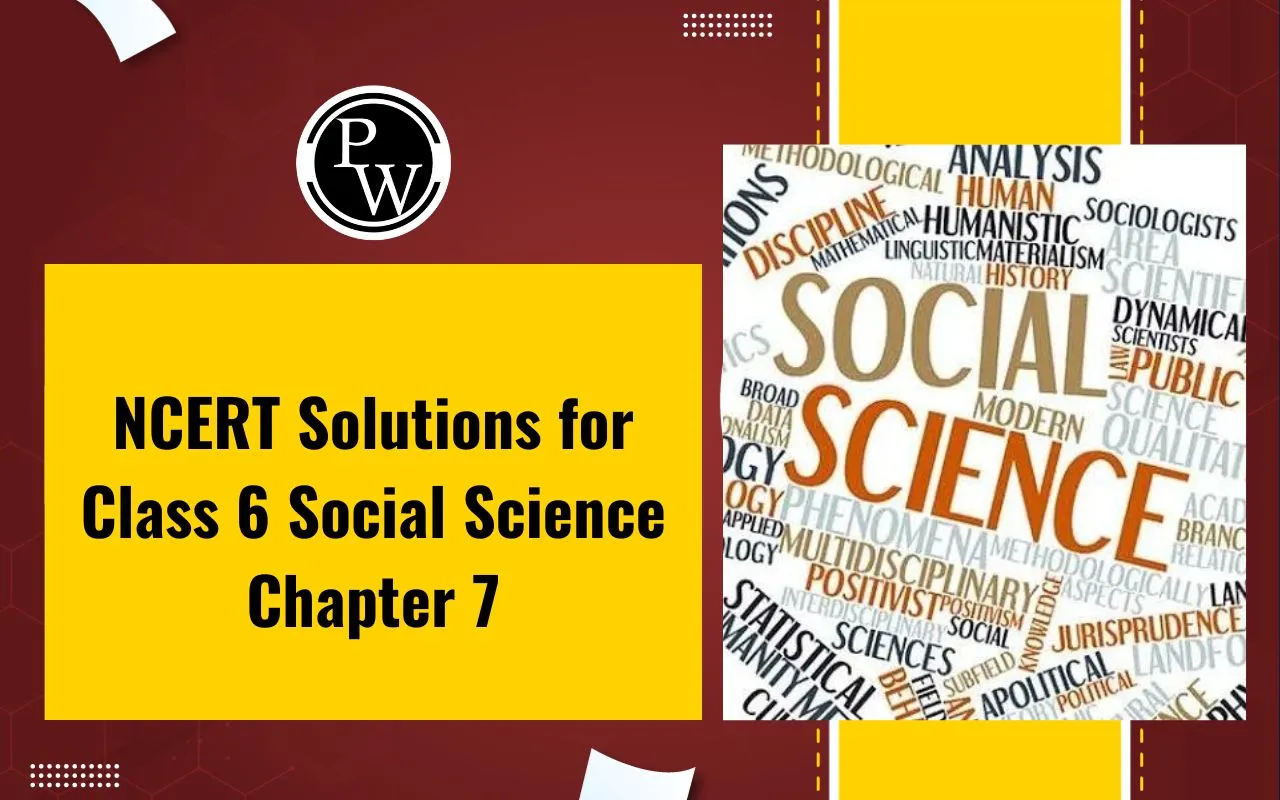
CBSE Class 6 Political Science Notes Chapter 8: These notes are important for students preparing for their CBSE Class 6 exams, especially in the subject of Political Science. These notes simplify complex concepts, making them easier to understand and relate to real-world situations.
By studying the Class 6 Political Science notes, students can develop a deeper understanding of political systems, democracy, human rights, and international relations. This knowledge not only helps in exam preparation but also empowers students to engage actively in their communities and contribute positively to society. Ultimately, these notes provide a strong foundation for future studies in political science and related fields, equipping students with the skills and knowledge needed for informed citizenship.CBSE Class 6 Political Science Notes Chapter 8 Quick Overview
These notes for CBSE Class 6 Political Science Chapter 8 Rural Livelihoods have been prepared by subject experts of Physics Wallah. The chapter provides an overview of how people in rural areas earn their livelihoods, primarily focusing on agriculture as the main source of income. The notes simplify complex ideas related to various rural occupations, including farming, animal husbandry, and traditional crafts making it easier for students to grasp these concepts. By using these well-structured notes students can enhance their understanding of rural livelihoods and their importance in the broader context of society and economy.CBSE Class 6 Political Science Notes Chapter 8 PDF
You can access the CBSE Class 6 Political Science Notes for Chapter 8 Rural Livelihoods in PDF format through the link provided below. Students can download the PDF to enhance their learning experience and gain valuable insights into the importance of rural livelihoods in the economy and society.CBSE Class 6 Political Science Notes Chapter 8 Rural Livelihoods PDF
CBSE Class 6 Political Science Notes Chapter 8 Rural Livelihoods
Here we have provided CBSE Class 6 Political Science Notes Chapter 8 Rural Livelihoods-On Being in Debt
Farmers often find themselves in a difficult situation where they need to borrow money to buy essential items like seeds, fertilizers and pesticides. Many rely on moneylenders for these loans, which can lead to a cycle of debt. If the seeds they purchase are of poor quality, or if pests attack their crops, it can result in major crop failures. If the monsoon season does not bring sufficient rainfall, farmers may struggle even more, leading to significant losses. When farmers are unable to repay their loans, they often have no choice but to borrow more money to survive. This can create a vicious cycle where the loan amount grows larger and larger, making it nearly impossible for them to repay it, regardless of their earnings. This situation has become a significant source of distress among farmers, contributing to a heartbreaking trend of farmer suicides. The burden of debt not only affects their financial stability but also has severe emotional and psychological impacts on their families and communities.Agricultural Labourers and Farmers in India
In Kalpattu village, the agricultural landscape is composed mainly of agricultural laborers, small farmers, and a few big farmers. Across India, nearly 40% of rural families consist of agricultural laborers who earn their livelihood by working on other people's fields, as they are often landless. Some may own very small plots of land, but for small farmers, the land is barely enough to meet their basic needs. In fact, around 80% of Indian farmers fall into this category, struggling to sustain their families through limited agricultural output. Conversely, only 20% of farmers in India are classified as big farmers. These individuals typically cultivate a significant portion of the land in their villages and are able to sell a large part of their produce in the market. Many big farmers have diversified their income by starting additional businesses, such as shops, moneylending, trading, or even small factories. In addition to farming, people in rural areas engage in various activities to supplement their incomes. This includes collecting resources from forests, practicing animal husbandry, dairy farming, and fishing. For instance, collecting Mahua, tendu leaves, and honey to sell to traders can provide important additional income. Dairy farming, where families sell milk to cooperative societies or transport it to nearby towns, is also a crucial source of livelihood for many. In coastal areas, fishing plays a vital role, especially in villages where it is the main occupation, contributing significantly to the local economy and the families’ sustenance.CBSE Class 6 Political Science Notes Chapter 8 FAQs
What are rural livelihoods?
Rural livelihoods refer to the various ways people in rural areas earn their living. This includes agriculture, non-farm activities, animal husbandry, fishing and crafts.
Why is agriculture important for rural livelihoods?
Agriculture is often the primary source of income for rural families, providing food and employment. It supports the economy and sustains the local community.
What challenges do rural communities face?
Rural communities face several challenges, including lack of access to markets, poor infrastructure, climate change, limited financial resources and inadequate education.
How do non-farm activities contribute to rural livelihoods?
Non-farm activities, such as handicrafts, trading, and services, provide additional income, diversify sources of livelihood and reduce dependence on agriculture.
What is the role of women in rural livelihoods?
Women play a important role in rural livelihoods, often managing farms, participating in household chores and engaging in various income-generating activities.
Talk to a counsellorHave doubts? Our support team will be happy to assist you!

Check out these Related Articles
Free Learning Resources
PW Books
Notes (Class 10-12)
PW Study Materials
Notes (Class 6-9)
Ncert Solutions
Govt Exams
Class 6th to 12th Online Courses
Govt Job Exams Courses
UPSC Coaching
Defence Exam Coaching
Gate Exam Coaching
Other Exams
Know about Physics Wallah
Physics Wallah is an Indian edtech platform that provides accessible & comprehensive learning experiences to students from Class 6th to postgraduate level. We also provide extensive NCERT solutions, sample paper, NEET, JEE Mains, BITSAT previous year papers & more such resources to students. Physics Wallah also caters to over 3.5 million registered students and over 78 lakh+ Youtube subscribers with 4.8 rating on its app.
We Stand Out because
We provide students with intensive courses with India’s qualified & experienced faculties & mentors. PW strives to make the learning experience comprehensive and accessible for students of all sections of society. We believe in empowering every single student who couldn't dream of a good career in engineering and medical field earlier.
Our Key Focus Areas
Physics Wallah's main focus is to make the learning experience as economical as possible for all students. With our affordable courses like Lakshya, Udaan and Arjuna and many others, we have been able to provide a platform for lakhs of aspirants. From providing Chemistry, Maths, Physics formula to giving e-books of eminent authors like RD Sharma, RS Aggarwal and Lakhmir Singh, PW focuses on every single student's need for preparation.
What Makes Us Different
Physics Wallah strives to develop a comprehensive pedagogical structure for students, where they get a state-of-the-art learning experience with study material and resources. Apart from catering students preparing for JEE Mains and NEET, PW also provides study material for each state board like Uttar Pradesh, Bihar, and others
Copyright © 2026 Physicswallah Limited All rights reserved.







